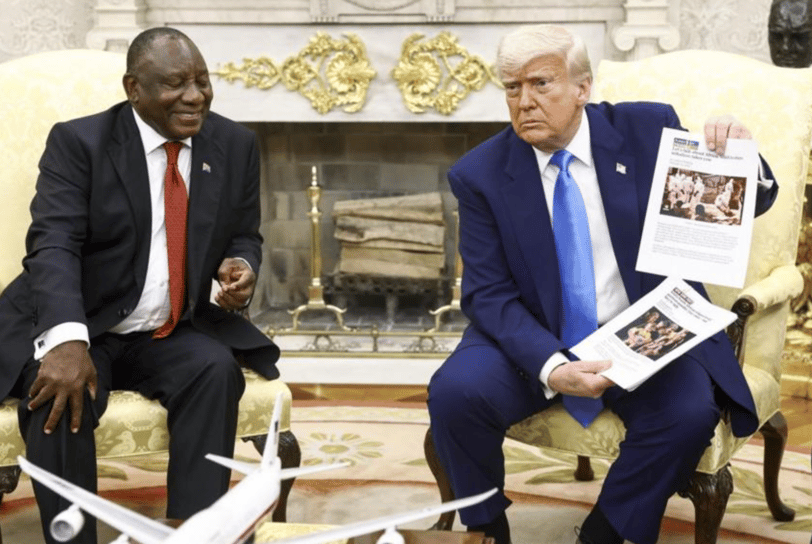Trump’s Grave Misstep: The Dangerous Intersection of Lies and International Diplomacy
5/22/20252 min read


Trump’s Grave Misstep: The Dangerous Intersection of Lies and International Diplomacy
In a startling display of misinformation, former U.S. President Donald Trump escalated tensions with South Africa by presenting a fabricated narrative of "1,000 roadside graves" of White farmers during a meeting with South African President Cyril Ramaphosa on May 21, 2025. This incident, detailed in a post by
@CalltoActivism
on X, reveals not just a lie but a potentially impeachable offense that underscores the perilous blend of domestic politics and international relations.
The meeting, intended to mend fences between the U.S. and South Africa, took a dramatic turn when Trump confronted Ramaphosa with a video purportedly showing burial sites of White farmers, claiming a genocide was underway. However, as reported by The Washington Post and ABC News, these "graves" were part of a protest, not real burial sites. This misrepresentation ignored the complex history of violence in South Africa, including the era of apartheid, and focused solely on recent events affecting White farmers, amplifying false claims of persecution.
Trump’s actions are part of a broader pattern of spreading disinformation, a tactic that The Atlantic describes as potentially grounds for impeachment when presidential lies have significant policy implications or affect international relations. This particular lie not only misled the American public but also strained diplomatic ties, raising questions about the integrity of U.S. foreign policy under his influence.
The repercussions of such falsehoods extend beyond immediate diplomatic fallout. They erode trust in leadership and can incite fear and division both domestically and internationally. The incident with Ramaphosa is a stark reminder of how misinformation can be weaponized, especially when it involves sensitive issues like race and national security.
As we reflect on this event, several thought-provoking questions arise:
How can international leaders verify information before it influences policy and public perception?
What are the long-term consequences of presidential lies on global trust and cooperation?
Should there be stricter accountability measures for leaders who spread disinformation with international implications?
This episode serves as a cautionary tale about the power and peril of words in the highest offices, urging a reevaluation of how truth is handled in the arena of global politics.
Explore deep insights on current events and growth.
Vision
Truth
hello@insightoutvision.com
+1-2236036419
© 2025. All rights reserved.
